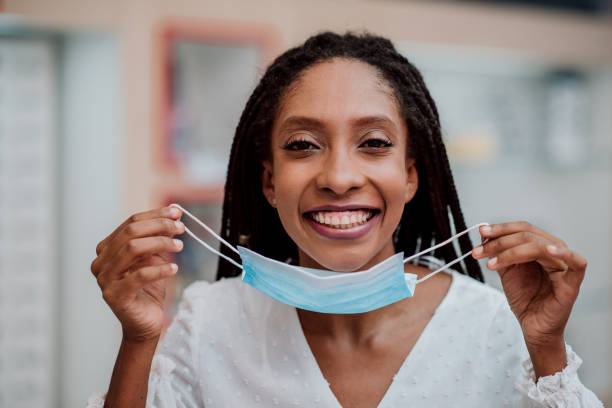
People newly infected with COVID-19 might soon have access to what essentially is Tamiflu for the novel coronavirus, a breakthrough that experts say would drastically alter the course of the ongoing pandemic.
At least three contenders are vying to become the first antiviral pill that specifically targets COVID-19, according to reports from drug manufacturers.
Merck & Co.'s antiviral drug molnupiravir leapt into the lead on Friday. That's when the company announced it will ask for quick U.S. approval for emergency use of their pill, after clinical trials showed it halved patients' risk of hospitalization or death from COVID.
Around 7% of COVID patients treated with molnupiravir were either hospitalized or died within a month of taking the drug, compared with 14% of patients who received a placebo. The analysis was based on data from 775 patients who'd enrolled early in the trial.
RELATED: Delta Variant Now Fueling 99 Percent of U.S. COVID-19 Cases
The new medication is just one of several antiviral pills now being tested in studies, and experts say these medications could give doctors a powerful new weapon to battle the virus. Late-stage study results of two other antiviral pills, one developed by Pfizer and the other by Atea Pharmaceuticals and Roche, are expected within the next few months, The New York Times reported.
In the Merck trial, which was conducted entirely on unvaccinated patients to prove the medicine can reduce hospitalization and death, molnupiravir was taken twice a day for five days. Merck says that an independent board of experts monitoring its study data recommended that the trial be halted early because the drug's benefits to patients were so convincing. The company adds that the U.S. Food and Drug Administration agrees with that decision.
How will an antiviral pill protect you?
If they prove safe and effective, these drug candidates could keep people infected with COVID out of the hospital and prevent those around them from contracting the coronavirus, experts say.
"These are all drugs that in one way or another interfere with the multiplication of the virus," Dr. William Schaffner, medical director of the Bethesda, Md.-based National Foundation for Infectious Diseases says.
"If you were exposed and the virus is already in your body starting to multiply, if we could get in there early with these drugs that inhibit their multiplication, obviously the virus can't spread to other parts of your body -- thus sparing you developing illness or getting a milder illness," Schaffner shares. "It also would make you less contagious to others."
People living with a COVID patient also might be able to get a prescription for one of these antivirals, Schaffner adds.
"It might well be that we could give these drugs to family members who are exposed and never have them develop any infection at all," Schaffner says.
RELATED: Is a Combo COVID/Flu Shot on the Way?
Existing treatments are flawed
There are already antiviral treatments available for people in the early throes of COVID, but they each have flaws that limit their usefulness.
Doctors have been using remdesivir -- a drug developed to treat Ebola -- to curb the damage done by a COVID infection, but its effectiveness is limited, Dr. Amesh Adalja, a senior scholar with the Johns Hopkins Center for Health Security shares.
"What we've seen so far, drugs like remdesivir are not really knockout punches because they are kind of repurposed" from the viruses they originally targeted, Adalja says.
Monoclonal antibodies also can attack the virus in early infection, but "as you know they're in short supply and they're pretty darned expensive," Schaffner notes. "They have to be given either intravenously or through a series of multiple injections under the skin, all of which makes things even more expensive, and you have to go to designated locations for treatment."
"What we've always needed is a Tamiflu equivalent to keep people out of the hospital, to decrease complications, but it takes time for antiviral drugs to be made because they're so specific to the viruses that are causing disease." Prescribed for flu, Tamiflu (oseltamivir) reduces flu symptoms and shortens recovery time.
Keeping people at home is a priority
"We always believed antivirals, especially an oral antiviral, would be an important contribution to the pandemic," Daria Hazuda, vice president of infectious diseases and vaccine discovery at Merck, tells the Washington Post. "Keeping people out of the hospital is incredibly important, given the emergence of variants and the continued evolution of the virus."
Merck's news comes on the heels of Pfizer's announcement early last week that it had entered phase 2/3 clinical trials for a COVID antiviral it calls PF-07321332.
Pfizer's drug candidate would be taken in combination with the antiretroviral HIV drug ritonavir to see if it could keep COVID from spreading to healthy trial participants living in the same household as someone with a confirmed infection, the company said in a statement.
The trial plans to enroll up to 2,660 people who will be randomly assigned to receive either the pill or a placebo twice daily for 5 to 10 days.
Meanwhile, Roche and Atea Pharmaceuticals announced positive early results for its own experimental antiviral, AT-527, in late June.
RELATED: Johnson & Johnson Announces Long-Lasting Protection of Single-Shot COVID-19 Vaccine
Early data from phase 2 trials showed that in two days the pill reduced the viral load of COVID patients by 80% on average compared to placebo. However, the early analysis only involved data from 62 hospitalized, high-risk patients.
The Roche-Atea pill wound up clearing about 47% of patients within two weeks, making them completely COVID-free. By comparison, 22% of people taking a placebo were cleared of COVID in the same time frame.
Roche and Atea expect to announce more results from phase 2 and 3 trials later this year, the companies say.
The prospect of curbing COVID at home with a pill is cause for cautious celebration, Schaffner notes.
"Isn't it great that we have at least three different firms working on three different drugs?" Schaffner says. "It's like the Olympics. We want to see who gets there first, but we would like to see all three of them be successful."
Merck -- which is developing the pill with Ridgeback Biotherapeutics of Miami -- did not say which patients it would ask the FDA to approve for the treatment. Initially, that group may be limited to patients who are eligible to receive monoclonal antibody treatments, possibly older people, and those with medical conditions that put them at high risk for poor outcomes from COVID-19 infection. But experts note that they expect the drug to eventually be used in many people who test positive for the virus, The Times reported.








